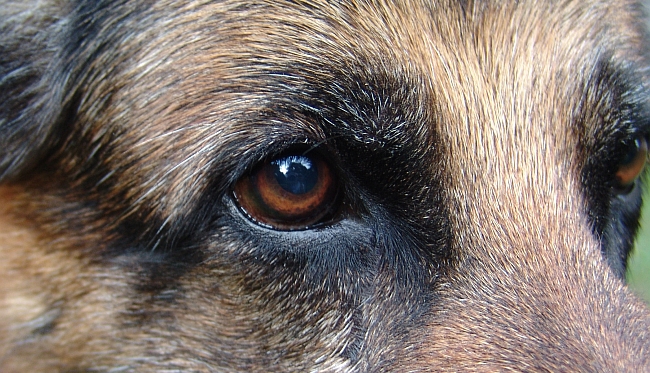
Most of us have dogs with perfectly functioning eyes and strong vision. But in some cases, diseases such as kidney failure, retinal degeneration, cataracts and even diabetes can weaken eyesight until the dog loses the ability to see entirely. If this should occur, do not be discouraged or start thinking about re-homing your pet. There are a few simple adjustments you can make to your lifestyle which will enable your dog to continue to live comfortably in spite of their new disability.
Fortunately, because dogs have such a keen sense of smell, and should be able to navigate well in life, by relying on their other sufficient senses. The below tips should make both his your life easier as you both practice living in the realities of having a blind dog.
Tips for Living With a Blind Dog
1. Don’t change anything about the layout of your house. All furniture should stay the same in every room, so your pup can move about with ease, guided by memory and scent. Keep your dog’s bed, food, and toys all in the same place, as moving them could be both disorienting for the dog, but could also increase his anxiety during the adjustment.
2. Keep your floors clear and free from any objects your pup could trip on (such as shoes, umbrellas, toys, etc.).
3. If you are a multi-pet household, arm the other pets with warning signals to help your vision-impaired pup know where they are. A jingling collar on the cat, or swishy-jacked on the other pup will let your pooch know when his buddies are approaching. (If you decide not to do this, that’s ok too, since your pal will be able smell them anyway!).
4. Block the hazards. If there are hot metal floor vents he could accidently step on, or stair cases he could tumble down at night, block these with a barrier to avoid catastrophe. Another alternative is to put the pup in a safe and cozy crate at night, so that no wandering can occur.
5. Let all visiting friends know that your pooch has trouble seeing, and that they should be gentle and slow to approach him.
6. Try not to startle your dog. Coming upon him suddenly, petting him abruptly while he is eating or sleeping (and might not hear you), ought to be both avoided at all costs. Dogs tend to get defensive when they are afraid or startled. Make sure your friends, family members and visiting children are aware of this too.
7. Keep him safe in public. Get a wrap-around jacket or bandana that says “I’m Blind” on it so that people know to be cautious and gentle around your dog whenever you go on walks, or go to the park. Only go walking with a short leash so your dog will feel safe, and comforted by being close by.
8. Talk to your dog often. Because the lack of eyesight will be jarring for your dog, it is imperative that you communicate with him often verbally and physically. If he seems to be developing anxiety, or whines when he is left alone to sleep, consider using a calming collar or a ThunderShirt to help him relax.

